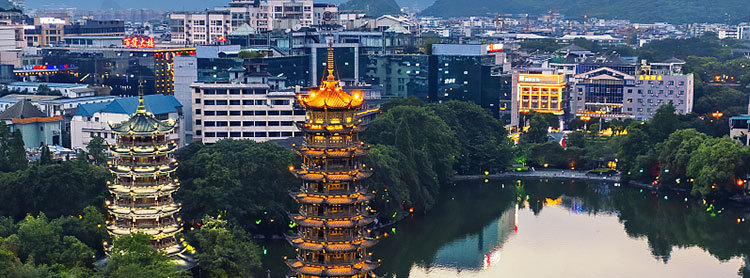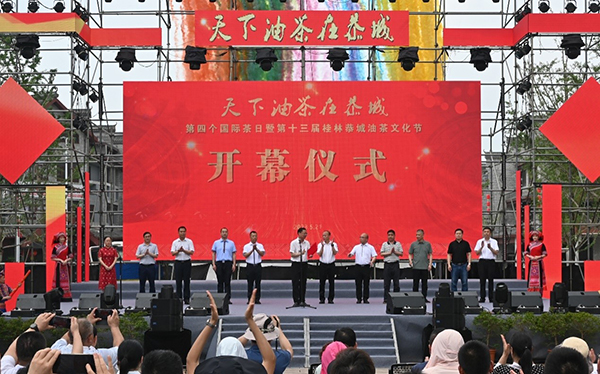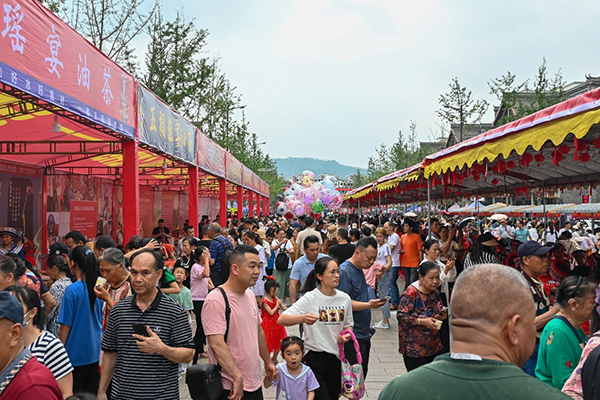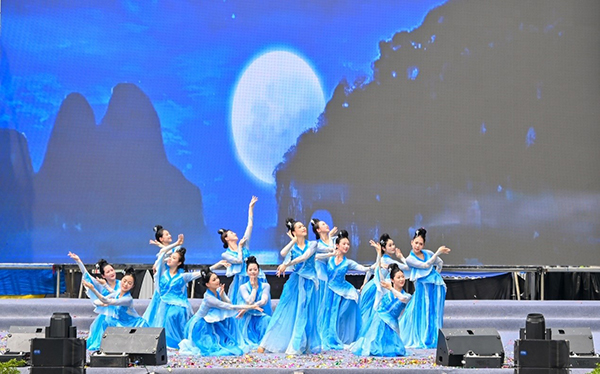
 Media Center
Media Center
On May 21st, which marked the fourth "International Tea Day", the 13th Guilin Gongcheng Camellia Oil Tea Cultural Festival opened in Gongcheng Yao Autonomous County, Guilin.

[The opening ceremony. Photo by Liu Zheng]
The event commenced with the song "Please Come to My Home for Camellia Oil Tea". At the festival venue, thousands of Yao ethnic people dressed in traditional costumes, and visitors from all over the country gathered to sing and dance with great enthusiasm, thus creating a lively and exhilarating atmosphere. Various activities, including camellia oil tea production, exhibitions of local specialties, a grand gathering of various ethnic groups such as Yao, Miao, Dong, and Zhuang, a long table feast featuring camellia oil tea dishes, and a Yao ethnic wedding exhibition, attracted numerous spectators. They enjoyed the experiences and tasted the delicacies.

[The lively Camellia Oil Tea Town. Photo by Liu Zheng]
Gongcheng camellia oil tea is hailed as the "Chinese coffee" and is known as the "health and longevity soup" of Gongcheng Yao autonomous county. The production process involves pounding tea leaves, ginger, peanuts, garlic, and other ingredients, followed by boiling them in water to create the tea drink. It offers refreshing properties, aids in digestion, invigorates the stomach, and helps prevent malaria.
The tradition of making camellia oil tea in Gongcheng dates back to the Tang Dynasty, making it over 1,000 years old. The fame of Gongcheng camellia oil tea has spread far and wide. In 2022, the camellia oil tea culture of Gongcheng, known as the "Yao Ethnic Camellia Oil Tea Custom", was successfully included in UNESCO's Representative List of the Intangible Cultural Heritage of Humanity.
To develop and expand the camellia oil tea industry, Gongcheng focuses on themes such as the "secret to longevity" and "Gongcheng, the home of camellia oil tea". They promote tourism development through festive culture. Gongcheng holds the Camellia Oil Tea Festival every year, using it to promote the development of the camellia oil tea industry and culture.
This year marks the 13th Guilin Gongcheng Camellia Oil Tea Cultural Festival. Over the next four months, Gongcheng will host a series of colorful activities, including camellia oil tea drinking competitions, Yao wedding exhibitions, Yaoguxu, the April 8th Ox King Festival, the Guangong Cultural Festival, the Dragon Boat Yao Medicine Cultural Festival, and an evening of fireworks.

[Cultural performances. Photo by Liu Zheng]
County officials have expressed their commitment to bolstering policy support, establishing a brand-centric mindset, and harnessing the full potential of being recognized as a "World Intangible Cultural Heritage" to propel Gongcheng camellia oil tea towards the goal of becoming a "billion-dollar industry."
Currently, there are over 1,800 restaurants in Guilin city that specialize in serving camellia oil tea, collectively generating a revenue of 3.5 billion yuan. Within Gongcheng county itself, there are 240 camellia oil tea restaurants, and across the entire region, 54 catering enterprises have received the title of "Gongcheng Camellia Oil Tea Production Standard Unit."
As of the end of 2022, the tea plantation area in the county had exceeded 666.67 hectares, yielding over 800 tons annually. In addition, the cultivation of supplementary ingredients such as ginger, corn, peanuts, and others spanned an extensive area of 12,000 hectares. These concerted efforts have facilitated the harmonious integration and innovative development of Gongcheng camellia oil tea across the primary, secondary, and tertiary sectors, forming a comprehensive industry value chain.